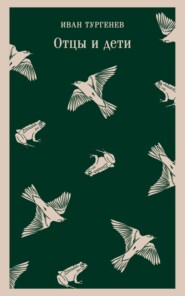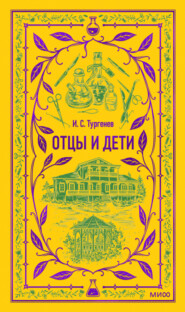По всем вопросам обращайтесь на: info@litportal.ru
(©) 2003-2024.
✖
Annouchka: A Tale
Настройки чтения
Размер шрифта
Высота строк
Поля
She was seated upon a bench near the river bank: though yet pale, her face was no longer sorrowful. A handsome young fellow was by her side and laughing with her, whilst at the other side of the Rhine my little Madonna, concealed in the dark foliage of the old ash, followed me sadly with her glance.
XXII
At Cologne I again came upon the track of Gaguine and his sister. I learned that they had gone to London. I immediately went to that city; all researches that I made there were in vain. For a long time I did not allow myself to be discouraged; for a long time I showed obstinate persistence, but finally was obliged to give up all hope of meeting them again.
I never saw them again! I never again saw Annouchka! – Later I heard some quite vague rumors of her brother; but as to her I have never heard her spoken of; I do not even know if she still lives.
Some years ago, while travelling, I caught sight for an instant, at the door of a railway-carriage, of a woman whose face had a little resemblance to those features that I shall never forget; but this resemblance was doubtless the result of chance. Annouchka lived in my memory as the young girl whom I saw at our last interview, pale and trembling, leaning upon the back of a wooden chair in the dark corner of a lonely room.
Besides, I must confess that the course of my grief was not of long duration. Soon I persuaded myself that fate had been favorable to me in preventing my marriage with her, and that a woman with such a disposition would certainly not make me happy. I was still young at this period, and that time so short and limited that they call the future appeared to me infinite. "That which has happened once to me upon my travels," I said to myself, "can I not meet it again, more charming and more delightful?" Since then I have known other women; but that feeling so tender that Annouchka had once awakened was never again aroused. No – no glance has ever replaced the glance of those eyes fastened upon mine; I have never again clasped to my breast a heart to whose throbbing mine has responded with an ecstacy so joyful. Condemned to the solitary existence of a wandering man, without a home, I regard those days the saddest of my life; but I still preserve as a relic two little notes and a withered sprig of geranium that she once threw me from the window; it breathes even now a slight fragrance, whilst the hand that gave it to me, that hand that I pressed upon my lips only once, has, perhaps, long since returned to dust. And I, what have I become? What is there left in me of the man of former days, of the restlessness of youth, of my plans, of my ambitious hopes? – Thus the slight perfume of a blade of grass outlives all joys, all human griefs, – outlives even man himself.
notes
1
Verse from Romance of Glinker.
2
Diminutives of Mary and Catherine.
3
National Russian air.
4
Poem of Pouchkina.
5
Instead of "mère," the Russian text says "nourrice."
6
Heroine of the poem.

















